19 Century Military Hardware
Point of View
The last years of the 19th century were filled with
exercises of power for the United States and its Caribbean neighbors. Above all, Cuba was affected by strong US
colonialist leanings. While many would
resist calling the US a colonial power, that era had the effect of spreading US
power for the benefit of the US nation.
It seemed as if the US, through application of gunboat diplomacy, was
set on a course of acquiring and maintaining hegemony over foreign lands.
In the late 1890's, the Spanish colony of Cuba was fighting
its third war of independence against its Spanish rulers. This war was going better for the Cubans than
the first two wars. While Cuba made gains
on the ground, in 1898, the world was shocked by the sinking of the US battleship
Maine in Havana's harbor with the loss of 268 lives. It seemed most likely the Maine was sunk by
the Spaniards, but some felt the Cubans did it to bring the US into the
war. To this day, there is not universal
agreement on who did it, despite many investigations.
But the US entered the war, and that entry spelled defeat
for Spain. Spain had once been among the
most successful colonial powers in the world with huge holdings in North and
South America and in the Pacific. By the
late 19th century, it had fallen on hard times, and their former success had
devolved into a hodge-podge of rebellious colonies and former colonies. They had already lost all of South America,
stripping the continent clean of their influence. In the Western Hemisphere Spain was left with
only Cuba and Puerto Rico under the Spanish fist.
The most famous part of the Spanish American War was surely
Teddy Roosevelt's Rough Riders taking San Juan Hill, but the decisive naval
victories really won the war. Spain's
navy was old, poorly maintained, short on coal, preoccupied with European
rivalries, and completely overmatched by the modern US fighting ships. Beyond Cuba, decisive US wins in Puerto Rico
and The Philippines settled the fate of Spain as a colonial power.
The US occupied Cuba for five years for five years after the
Treaty of Paris, which stopped the war.
Finally the US used its power to exact a new treaty called the Platt
Amendment. That treaty gave the US the
right to intervene militarily in Cuba if it (the US) took a dim view of foreign
or domestic events. Cuba could not
contract debt to a foreign country without US approval. Also, we compelled the granting of perpetual
occupancy of a naval base on the island.
That occupancy continues to this day as the naval base at Guantanamo.
Thus the 20th century began with Cuba free of Spanish rule but
with severe new restrictions giving the US say so over foreign
relationships. In the decades after the
end of the war, the US saw fit to intervene with troops at least three times. A late as 1917, the US intervened with troops
sometimes after corrupt elections had installed Cuban leaders not to US liking.
Recently, when I started reading about the Spanish American
War, I began with my standard high school American History class's
understanding of the war and its aftermath.
Needless to say, my high school teachers didn't devote much time to how
we got into the war or what happened after the war. They surely didn't lead my class and me to an
appreciation of how all this looks to Latinos all over the Caribbean, Central,
and South America.
In my view as an American schoolboy, we had really
helped the Cubans. We ended the Spanish
mistreatment of Cuba. On the sinking of
the USS Maine, we entered the war on Cuba's side and made short work of "freeing"
the country. Also on Cuba's behalf we
punished Spain not only by "freeing" Cuba, but also by kicking the
Spanish out of Puerto Rico and Guam, and we forced them to sell the Philippines
to us at a bargain price. We drove the
final nails in the coffin of Spanish colonialism in the Western Hemisphere
The war and the win were the stuff of Teddy Roosevelt's
dreams, and his popularity, along with William McKinley's assassination,
propelled him into the White House and to a place on Mount Rushmore. Toward Cuba, the US assumed the role of
kindly old Uncle Sam, guiding Cuba on a path we prescribed.
However in a typical Latino's view, the US entry into
Cuba's third war of independence was not really gratuitous. The Latino would note that we waited three
years after the start of the war until Cuba had almost won the fight. We allowed the Cubans to do as much of the
heavy fighting as we could, and then we applied naval power to finish the war
off in our favor. We used this war to
start the US on a plan of colonial domination, and evidence of this is the huge
percentage of Cuban businesses owned by Americans. Even in 1959, when Castro's Revolution
triumphed, US interests owned over 70 percent of Cuban enterprises. Finally, our Latino observer would say, when
the fighting stopped, we occupied the island for five years and then forced the
Cubans to let the US intervene whenever it liked. We also took, apparently in perpetuity, the
46 square mile Guantanamo naval base.
So what one thinks is colored by one's point of view. A patriotic US kid would be justified to see
the US involvement in the war as a friendly rescue mission, while a Latino kid of the same age would see something
far more sinister in Uncle Sam's trying to keep peace in the world. If such opposed views can happen here in our
own backyard, it's easy to imagine why large numbers of people in Egypt, Syria,
Pakistan, and Iraq don't subscribe to our present day self-appointed role as
world policeman.
Les Inglis













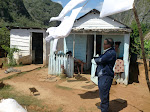




























































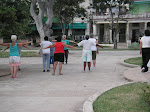
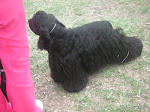
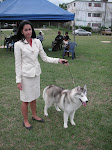





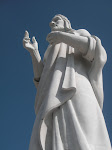


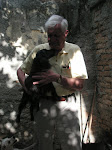



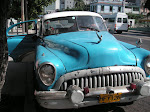

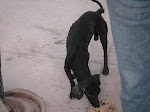



No comments:
Post a Comment